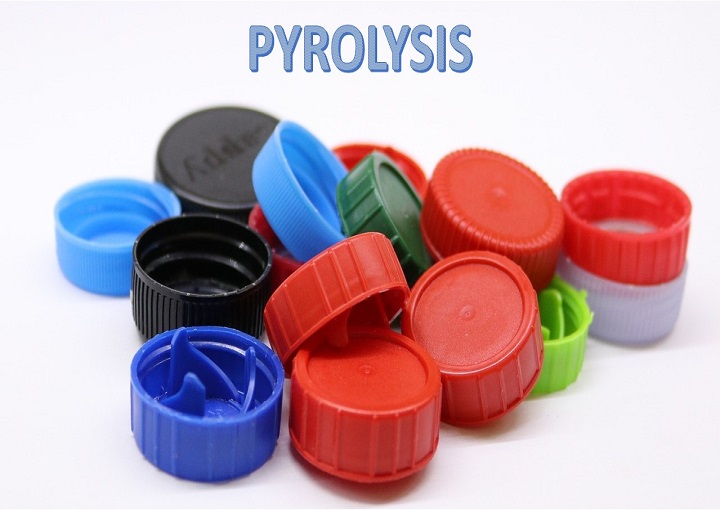Introduction:
Pyrolysis is a process that has been used for centuries, but it has gained significant attention in recent years as a promising method for producing renewable energy and reducing waste. Pyrolysis meaning refers to the thermal decomposition of organic materials in the absence of oxygen. This process is used to convert biomass, plastic, rubber, and other organic materials into valuable products like biochar, bio-oil, and syngas. In this article, we will explain the pyrolysis meaning, the process, its applications, and benefits.
What is Pyrolysis?
Pyrolysis is a process of thermal decomposition of organic materials in the absence of oxygen. It involves heating the material to a high temperature, usually above 400°C, in a closed container. As the temperature rises, the organic material breaks down into smaller molecules, which vaporize and are then condensed into various products. The products of pyrolysis depend on the type of feedstock and the process conditions.
The pyrolysis process is classified into three categories based on the operating temperature:
1. Slow pyrolysis:
It involves heating the material at a low temperature, typically around 450°C, for a long time, usually several hours. This process produces biochar, bio-oil, and gas.
2. Fast pyrolysis:
It involves heating the material at a high temperature, usually above 500°C, for a short time, usually less than 2 seconds. This process produces a high yield of bio-oil and gas.
3. Flash pyrolysis:
It involves heating the material at an ultra-high temperature, usually above 1000°C, for a fraction of a second. This process produces a high yield of gas.
Applications of Pyrolysis:
Pyrolysis has several applications in various fields, including:
1. Energy production:
Pyrolysis is used to produce renewable energy from biomass, waste plastic, and rubber. The bio-oil and gas produced from pyrolysis can be used as a fuel for electricity generation, heating, and transportation.
2. Waste Management:
Pyrolysis is an effective method for reducing the volume of waste plastic, rubber, and other organic materials. It converts waste into valuable products like biochar, which can be used as a soil amendment, and bio-oil, which can be used as a fuel.
3. Chemical Production.
Pyrolysis is used to produce various chemicals like acetic acid, methanol, and pyroligneous acid. These chemicals are used in the production of paints, adhesives, and other industrial products.
Benefits of Pyrolysis:
Pyrolysis offers several benefits, including:
1.Renewable energy:
Pyrolysis is a promising method for producing renewable energy from biomass and waste materials. It reduces dependence on fossil fuels and helps mitigate climate change.
2. Waste Reduction :
Pyrolysis reduces the volume of waste plastic, rubber, and other organic materials, which reduces the need for landfills and incineration.
3.Valuable Products
Valuable products: Pyrolysis produces valuable products like biochar, bio-oil, and gas, which can be used as a fuel or feedstock for various industrial processes.
FAQs:
1.What is pyrolysis?
Ans. Pyrolysis is a thermal decomposition process in which organic materials are heated in the absence of oxygen, resulting in the breakdown of the material into smaller molecules.
2. What are some examples of materials that can undergo pyrolysis?
Ans. Pyrolysis can be used to process a wide variety of organic materials, including biomass, plastics, rubber, and waste materials.
3. What are some common applications of pyrolysis?
Ans. Pyrolysis is commonly used for waste management and recycling, as well as for the production of biochar, which can be used as a soil amendment. It can also be used to produce biofuels, such as bio-oil, which can be used as a substitute for petroleum-based fuels.
4. How does pyrolysis work?
Ans. Pyrolysis works by heating organic materials in the absence of oxygen. The process typically involves three stages: drying, pyrolysis, and char formation. During the pyrolysis stage, the organic material breaks down into smaller molecules, which are then condensed to form liquid or solid products.
5. What are the benefits of pyrolysis?
Ans. Pyrolysis can be a cost-effective and environmentally friendly way to manage waste and recycle materials. It can also produce valuable products, such as biofuels and biochar, which can help reduce our dependence on fossil fuels and improve soil health.
6. Are there any risks or drawbacks to pyrolysis?
Ans. Like any industrial process, pyrolysis can have some risks and drawbacks. For example, it can produce emissions, such as volatile organic compounds and particulate matter, which can be harmful to human health and the environment if not properly managed. Additionally, pyrolysis can require significant energy inputs, which can make it less sustainable if the energy used to power the process is not renewable.
7. Can pyrolysis be used on a large scale?
Ans. Yes, pyrolysis can be used on a large scale to process large volumes of waste or biomass. There are already several commercial-scale pyrolysis plants in operation around the world.
8.what are some major companies works in the field of pyrolysis?
Ans. There are several major companies that work in the field of pyrolysis, including:
-
Ensyn – A Canadian company that specializes in producing renewable biofuels and chemicals through the use of pyrolysis technology.
-
Agilyx – An American company that develops and commercializes pyrolysis technology to convert waste plastics into high-value chemicals.
-
Biochar Now – An American company that produces biochar, a type of charcoal made from organic waste materials through the process of pyrolysis, which can be used as a soil amendment and carbon sequestration tool.
-
Advanced BioRefinery Inc. – A Canadian company that uses pyrolysis technology to produce renewable energy and biofuels from a variety of organic waste materials.
-
Pyrocal – An Australian company that specializes in the production of biochar and other renewable products through the use of pyrolysis technology.
- Pagnism innovation’s – An indian company expert in field of reducing carbon and Sulphur through plastic and tyre pyrolysis.
These companies are just a few examples of the many organizations that are working to develop and commercialize pyrolysis technology for a variety of applications.

